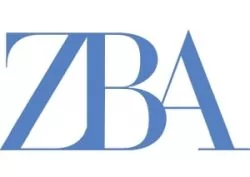In Ultra Deep Subsea vs. Hindustan Oil Exploration Company, the Bombay High Court in a well-reasoned judgement unshackled the powers of the Court to order security in the form of a deposit of money, in aid of a foreign seated arbitration.1 In so doing, it reiterated that Indian Courts have the jurisdiction to order payment in to court as security in aid of a foreign seated arbitration, in circumstances, where the recalcitrant debtor had illegally withheld monies that were contractually due to its counterpart. The Court reiterated that the power to grant security in aid of a foreign seated arbitration was not exclusively dependent on establishing a case of frittering of assets by the defaulting party. In advancing the law, it held that the court would order a deposit into court of admitted amounts, where the defaulting party had the means to pay but unlawfully refused to do so. The power to order security in the form of a money deposit was wide and plenary and was not to be controlled or restricted to establishing dissipation of assets by the defaulting party.
Offshore Contract and Arbitration Clause
Hindustan Oil Exploration Company ("HOEC") time chartered a vessel from Ultra Deep Subsea ("UDS") on the standard BIMCO Supplytime 2017 Charter Party form ("C/P") for diving support operations. As is typical, the C/P was governed by English law and provided for an LMAA administered arbitration seated in London.
Pay now Argue Later Clause
Pursuant to Clause 12(e) of the BIMCO Supplytime 2017 C/P, HOEC agreed that invoices issued by UDS would either be paid or promptly disputed with reasons, within 7 days of their receipt.
Admissions of Liability
UDS routinely invoiced HOEC, but no objections/dispute were conveyed to UDS. Instead, HOEC repeatedly sought time to pay the invoiced amounts beyond the 7-day period stipulated in Clause 12 (e) of the C/P, claiming difficulties ranging from Covid relating restrictions to awaiting a withholding tax order from the tax authorities for remittance of foreign exchange.
UDS extended the duration of the C/P on multiple occasions relying on HOEC's promises to pay the invoices, albeit with a delay.
However, once UDS completed the drilling work under the C/P, HOEC refused payment and in a volte face, alleged that UDS' services were deficient, the vessel sub-standard and that there were discrepancies in the invoices.
On HOEC's payment default, UDS applied to the Bombay High Court for security in aid of the LMAA arbitration in the form of an order of deposit of the invoiced amounts.
Power of Court to order Interim Measures in Support of Foreign Seated Arbitration
The Court rejected HOEC's preliminary objection that it did not have jurisdiction to order interim measures, when the arbitration was seated abroad and the substantive law of the contract was foreign. The proviso to section 2(2) of the Arbitration and Conciliation Act 1996 ("Arbitration Act") which statutorily authorised an Indian court to order interim measures in support of a foreign seated arbitration, (in the absence of an agreement to the contrary) was construed as being permissive and that any exclusion of its jurisdiction in aid of the foreign seated arbitration had to be specific and express.
The Court accordingly held that merely providing in the C/P for English law and LMAA arbitration seated in London, did not imply an agreement to exclude its jurisdiction to grant interim measures in aid of the LMAA arbitration in London. Accepting such an interpretation, according to the Court, would result in the proviso to Section 2(2) of the Arbitration Act being rendered redundant. It ruled that something more express and specific was required to exclude the power of Indian courts to grant interim measures in aid of a foreign seated arbitration under Section 9 of the Arbitration Act, which was clearly lacking in the present case.
Test for Granting Interim Measures
HOEC's contention that no security in the form of an order for deposit of money could be granted, as it was not UDS's case that it was dissipating assets with a view to defeating any award that could be passed against it, was rejected by the Court.
Admission of Liability
The Court reasoned that it was justified in ordering HOEC to deposit money in court as security for the claim against it in the foreign seated arbitration due to its repeated admissions of liability coupled with the terms of Clause 12 (e) of the C/P. More importantly, the Court held that the interests of justice warranted the grant of security in the form of a deposit of money, in cases such as the present, where there were clear admissions of liability or the defences raised by a party were prima facie untenable.
Significantly, the court clarified that its power to grant security under Section 9 of the Arbitration Act was broad and not strictly bound by the provisions of Order XXXVIII of CPC, which govern cases relating to attachment of assets to which the test of dissipation was applicable.
Holding Parties to their Contractual Bargain
The Court regarded Clause 12(e) of the C/P as a 'pay now argue later' clause, which barred HOEC from withholding the invoiced amounts, unless it raised any objection/dispute within 7 days of their receipt. Relying on the English Commercial Court decision in The Atlantic Tonjer (2020 I Lloyd's Law Rep 171), it observed that this clause was included in the BIMCO Supplytime 2017 form, to ensure that cash flow (which is of crucial importance to shipowners) was not disrupted. Endorsing and applying the view of the English Commercial Court, it construed Clause 12 (e) of the C/P as requiring HOEC to deposit the invoiced amounts in Court due to its failure to raise any dispute within the contractually stipulated period. HOEC was free to dispute the invoices before the arbitral tribunal, but could not illegally withhold amounts contractually due to UDS.
Significance of this Ruling
This is a positive development in the evolution of arbitration law as, it demonstrates the flexibility of the Indian Courts in granting effective and meaningful orders in aid of foreign arbitration. The ruling assists claimants in obtaining security in India when faced with contractual counterparts, who are not necessarily insolvent or dissipating assets, but who are in clear breach of contractual stipulations requiring prompt payment. The ruling sends a stern warning to recalcitrant parties that the Court will not hesitate to order a deposit of money, if on a prima facie basis, it finds admissions of liability or no genuine dispute and/or that the defences are mere moonshine or that the defaulting party has no real prospect of successfully defending the claim or that monies have been illegally withheld contrary to clear contractual terms.
The judgement fosters user confidence and respect of the Indian judicial system for molding relief that is just and in sync with commercial reality.
Footnote
1. Judgement and order of Justice BP Colabawala dated 13 December 2021. ZBA successfully represented the applicant in obtaining the order of deposit as security for the claim in the London seated arbitration.
The above is a generic analysis and should not be regarded as a substitute for specific advice based on the facts of a client's objectives and specific commercial agreements reached. Please do reach out to us at mail@zba.co.in for any queries.

